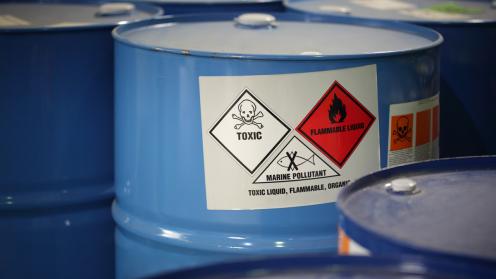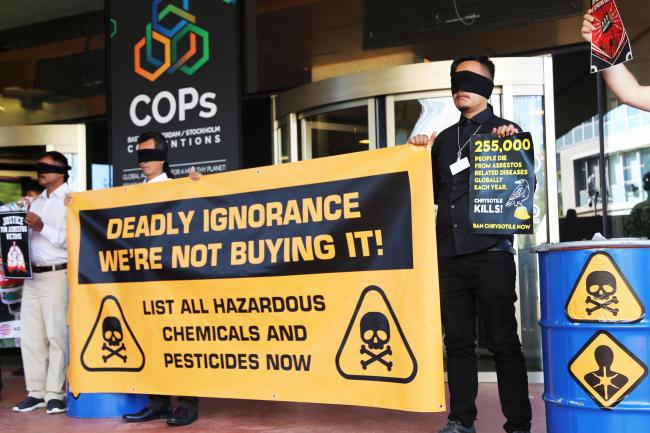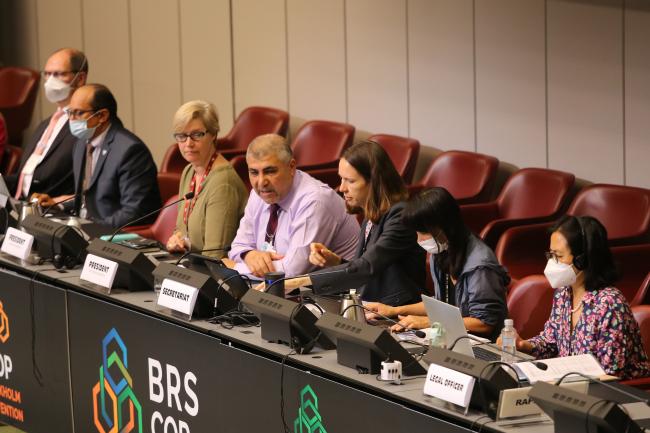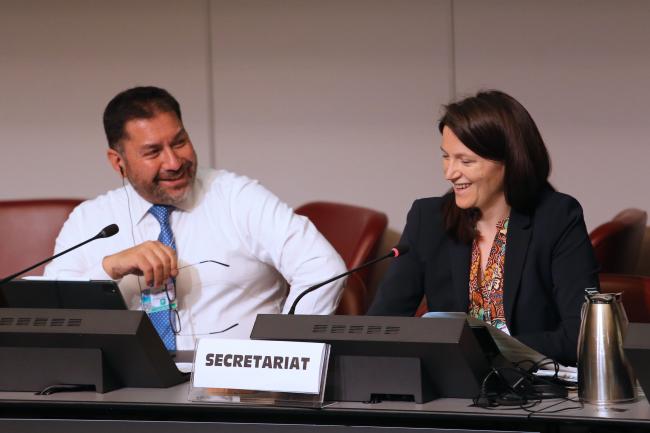The end of the two-week Triple COP is already in sight, bringing added pressure to the negotiations. The Basel Convention (BC) adopted as many of its decisions as were ready. The Rotterdam Convention (RC) sought to find a way forward on several of the seven chemicals proposed for listing in Annex III of the Convention. A listing would make the chemicals subject to information exchange under the RC’s Prior Informed Consent (PIC) procedure.
Want to dive deeper? Read the full Earth Negotiations Bulletin daily report.
In the BC discussions, delegates acknowledged that they will not be able to complete the technical guidelines on plastic waste. Just last week, many hoped that this would be possible, especially with the negotiations of a new legally-binding instrument on plastic underway. The technical guidelines, they hoped, would provide useful input to those discussions. However, the work was complex, given the many types of plastics used in a huge array of products and, accordingly, the varied national interests at play. This work might signal to those working on the new plastic treaty that the negotiations will be technically tricky and politically fraught.
Meanwhile, e-waste delegates continued to try to find a balanced package that all could agree to. The task involves creating lists of hazardous and non-hazardous e-wastes. Both would be subject to the BC’s PIC procedure, but would be managed differently. E-wastes are mixed by design, and other products, such as those with an electronic display, may contain hazardous materials.
For the RC, discussion on the seven chemicals proposed for listing were split into groups. Discussions on acetochlor and carbosulfan took place among parties only as part of a “Friends of the President” group. Plenary, then a contact group, discussed the severely hazardous pesticide formulations of paraquat and fenthion, and then chrysotile asbestos. Chrysotile has been on the agenda for 16 years and attracted considerable debate, as usual. Many unions spoke to stress the need for information on its safe management to protect workers. A process for trying to advance the discussions on perfluorooctanoic acid (PFOA) and decabromodiphenyl ether (decaBDE) was not yet identified.
The RC adopted a decision on how to improve its effectiveness. Also today, further “technical consultations” on the RC’s effectiveness were held between the EU and Africa and the EU and Latin American countries. Other events focused on the BC and its role in accelerating sustainability and addressing the illegal waste trade. One considered how sustainable chemistry could also be a climate solution, while another looked toward the SAICM beyond-2020 process.
To receive free coverage of global environmental events delivered to your inbox, subscribe to the ENB Update newsletter.
All ENB photos are free to use with attribution. For photos please use: Photo by IISD/ENB | Angeles Estrada Vigil








































